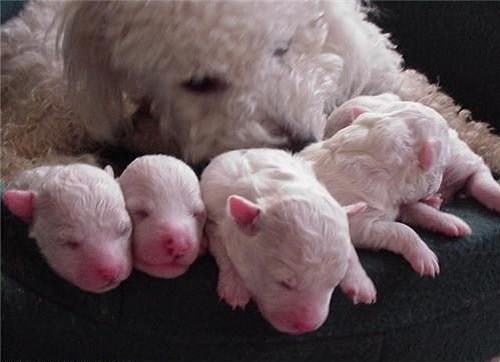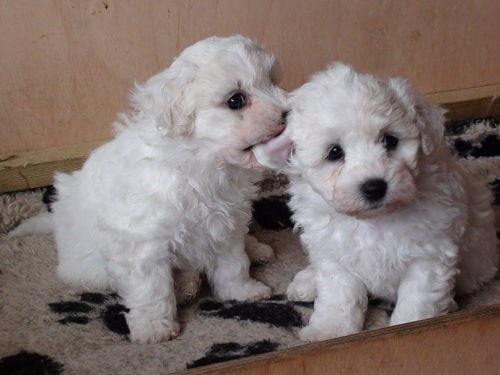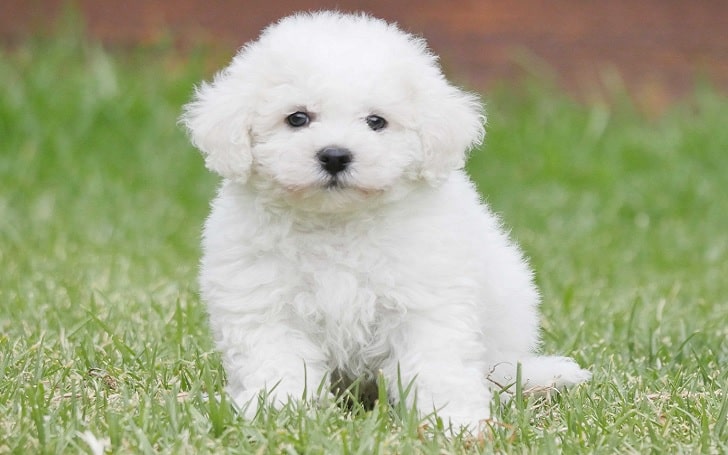Bichon Frise Puppies
Bichon Frise is a small-sized dog breed of toy group members. It is an excellent family companion for those who are looking for a small dog to play and cuddle with. They have an affectionate, lively, and gentle temperament which makes them the best companion for loving family in an apartment.
The Bichon Frise can give birth to 4-6 puppies at a time. The puppies need good care when they are still young, so they grow up to be healthy and happy adults.
Newborn Bichon Frise
The newborn Bichon Frise is so small that it looks like a guinea pig. They cannot see, hear, or have any tooth to have any solid food. They are very fragile that they cannot generate heat from their body and crawl up to their mother for warmth and coziness.
They cannot walk for a few weeks and only feed on their mother’s milk. The milk is rich in colostrum that contains antibodies and protects the puppies from any kind of serious health problems.
Neonatal Stage (0-2 Weeks)
The neonatal stage is a very vulnerable stage for the Bichon Frise puppies as they cannot do most of the things by themselves. They cannot pee or defecate on their own, so the mother licks their belly which stimulates the puppies to defecate and pee.

Image Source: Pinterest-@Terry Mauthe
At this stage, they should only be fed mother’s milk and kept near the mother. If they are separated from the mother, the puppies might die of hypothermia. So, do not take them away from the mother and do not bathe them for a few weeks.
Transitional Stage (2-4 Weeks)
The stage when the puppies start to see, hear is called the transitional stage. They get familiar with the canine and human world by the time they reach 4 weeks. The puppies first open their eyes when they are 10 days old but the vision still remains a blur. By the time they reach 16 days old, the puppies hear for the first time.
They also start walking a few wabbly steps and communicate by whining and yelping to their littermates. For the first time, the puppies sample solid food from the plate of their mother.
Socialization Stage (4-16 Weeks)
The Bichon Frise puppies are ready for socializing when they reach the age of 4 weeks. It is also the time for their basic training session, so start training them with housetraining and basic obedience training. Leash train them first before taking them out for introducing them to the world.

Image Source: Elsetge.Cat
After the puppies get comfortable walking on the leash, take them to the outside world slowly. Introduce them properly to the strangers in the park and other canines with them. The puppies are scared at this stage, so be gentle with them and never be forceful or harsh on them. Otherwise, they will grow up to be a terrified little dog.
This stage is also the time for their vaccination against distemper, hepatitis, leptospirosis, parvovirus, and medication for heartworm. A timely vaccination will keep the Bichon Frise puppies away for any serious health problems.
Juvenile Stage (3-6 Months)
This stage is a challenging stage as it is the teenage period if we calculate their age to humans. Their independence strikes where they slightly ignore certain commands and instructions. They start to look more of an adult losing their puppy face. Their teeth are out and you will see them chewing and teething stuff. To avoid them damaging any household stuff, bring them chewing toys.

Image Source: 1ZOOM.Me
Start pre-agility for Bichon Frise puppies as they are very enthusiastic at this age and need physical activities.
Adolescence Stage (6-12 Months)
In the adolescence stage, the puppy is fully grown and is an adult now. The male Bichon Frise becomes more dominant and they start to show their hormonal behavior. The female also experienced her first heat at 6 months old. The males start showing more interest in female but this is not a healthy stage to involve them in mating and breeding. So, keep the male isolated from a female for at least 18 months old.
Continue the Bichon Frise interaction with other human beings besides the family members. Provide them with complete balanced diets and required supplements. Involve them agility and other physical exercises.
Visit Doglime for more information about dog breeds and their puppy’s development stages.










